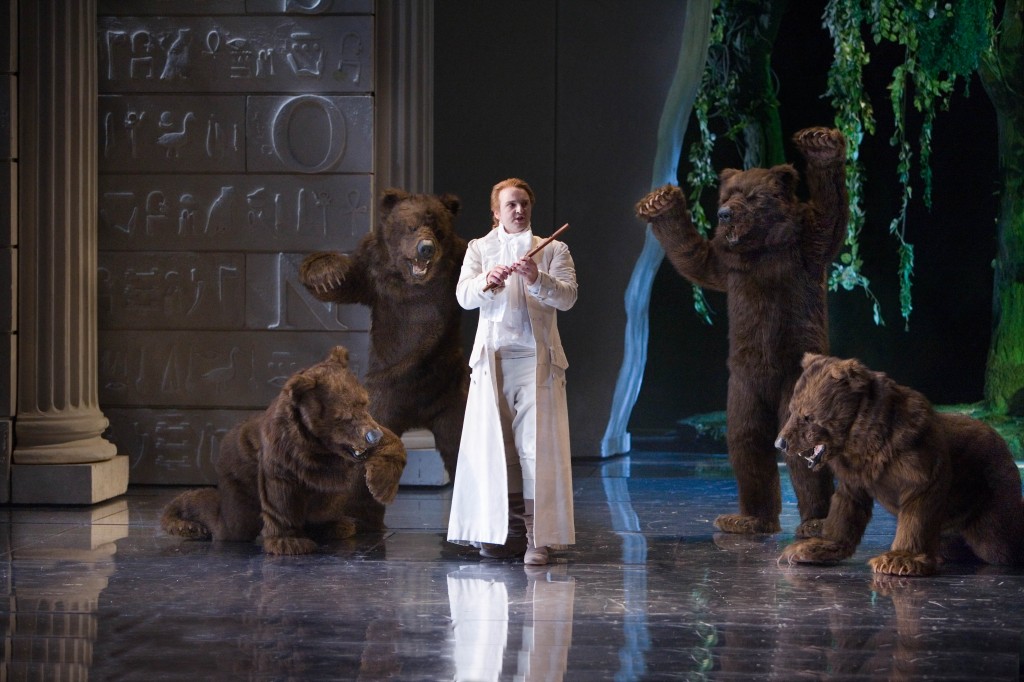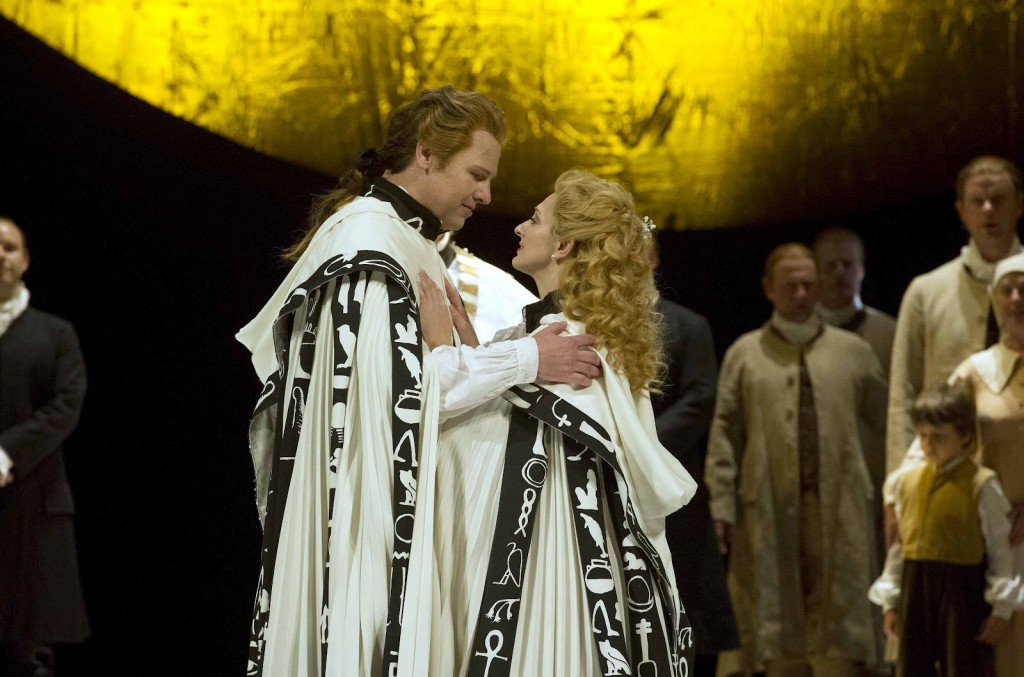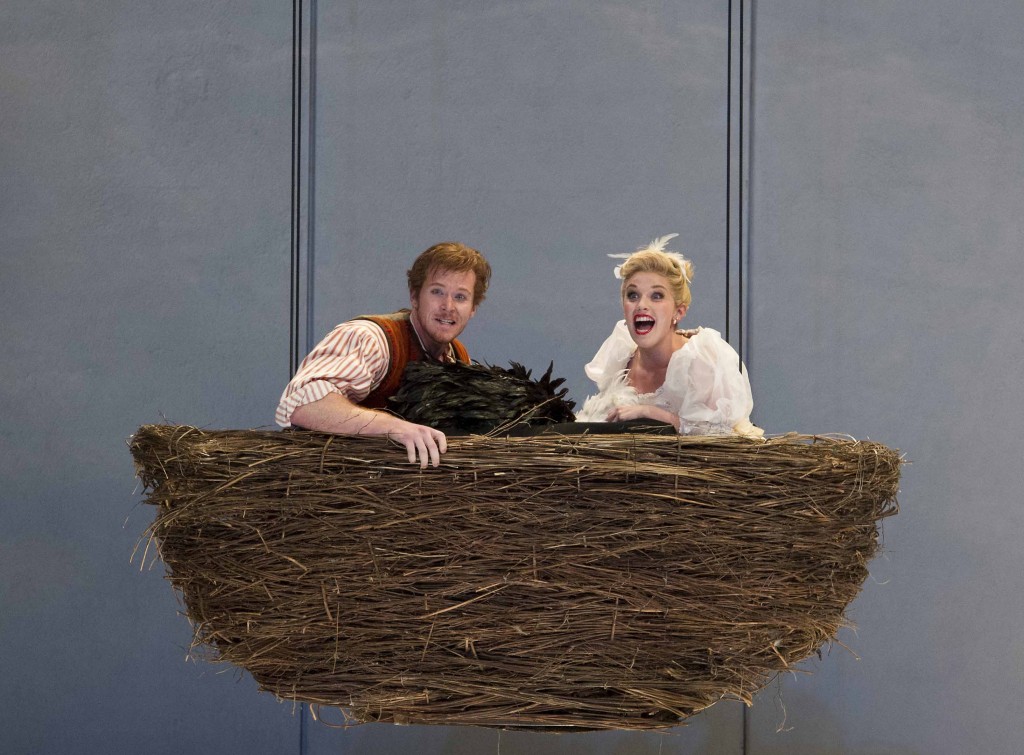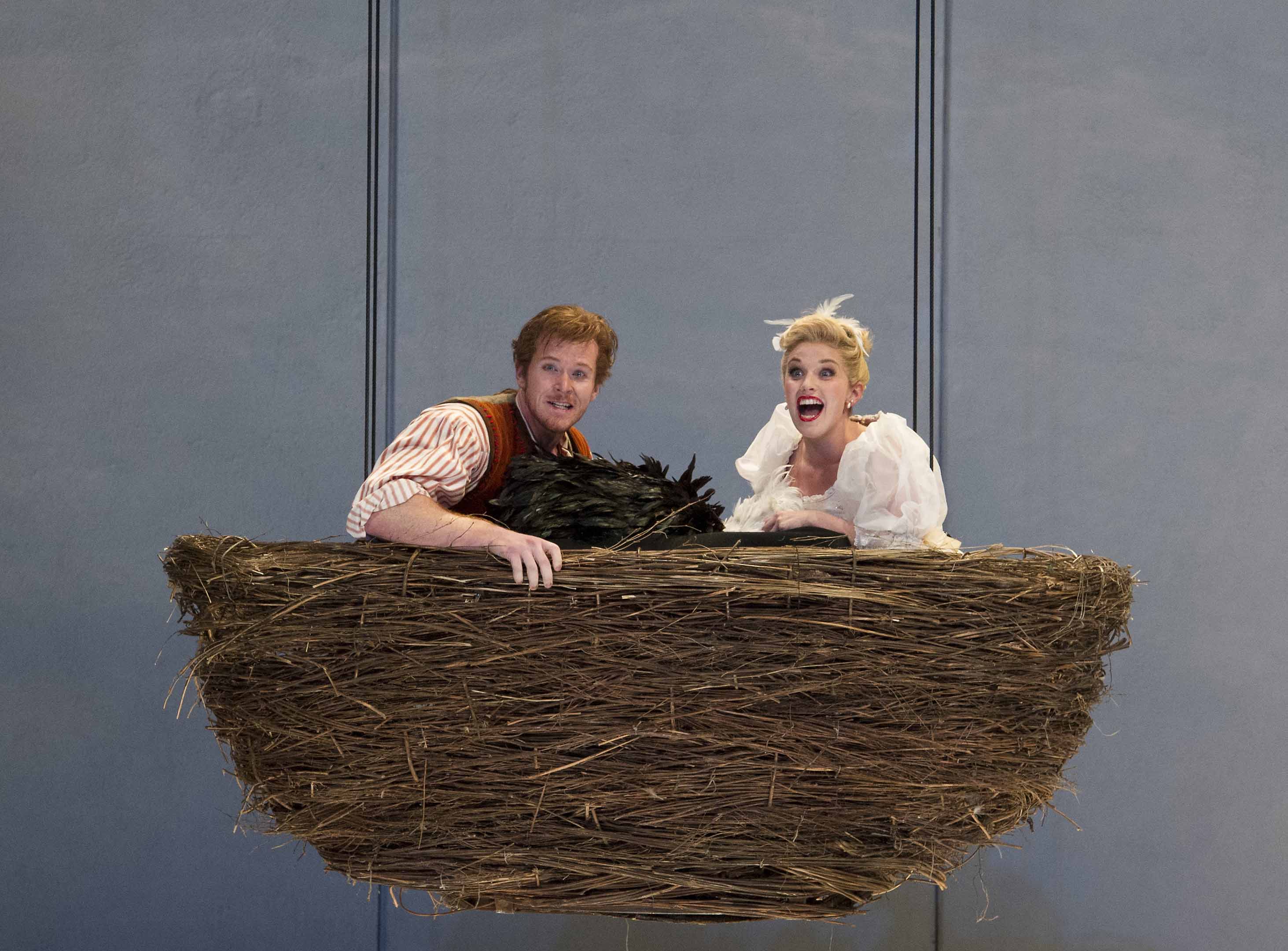Long considered a masterpiece in the ENO repertoire, the opening night of the final ever revival of Nicholas Hytner’s well-loved production of The Magic Flute was seen by many as like parting from a good friend. Just ten performances mark the end of what is the 15th revival of this production, celebrating its 25th year, and brought to life once again by directors Ian Rutherford and James Bonas.

The Artistic Director of the National Theatre since 2003, Hytner received instant recognition for making this comic opera truly enjoyable, in a way that opera often isn’t, whilst the English translation by Jeremy Sams is light-hearted and amusing. Although it generally excites an audience more to see an entirely new production, it will not be easy to improve on the delight of seeing this visual marvel.
With fantasy sets including hieroglyphs and a flying bird’s nest designed by veteran Bob Crowley, it captures all the fairytale-like qualities you hope for from Mozart’s 22nd and final opera; the mythical story of two sets of lovers and the trials they are faced to overcome in return for winning their heart’s desire. From poisonous snakes, bears in the forest, and live birds, The Magic Flute is an opera which thrills young and old alike.
The first act introduces Tamino (played by tenor Shawn Mathey), a handsome prince attacked by a large and deadly serpent, which three ladies, servants of the Queen of Night, destroy in order to protect him. The three women depart in order to tell the Queen of Night about him. The Queen’s jovial bird-catcher Papageno (Australian baritone Duncan Rock) later claims to have killed the snake, whereupon he is directly punished by having his mouth locked for telling lies. Tamino is shown a picture of Pamina, the Queen of Night’s beautiful daughter, with whom he instantly falls in love. But Pamina has been captured by Sarastro, the Queen’s enemy. The Queen asks Tamino to rescue her daughter, gifting him a flute with magic powers and later sends Papageno along to help with a set of magical chimes.

Pamina is being held by the evil Monostatos, played by the superb Adrian Thompson, who is intent on molesting her. Papageno rescues Pamina and they set off to look for Tamino. Tamino has meanwhile entered Sarastro’s mysterious brotherhood, the temple of Nature, Reason and Wisdom, where he undergoes many obstacles before finally being re-united with the beautiful Pamina in Act II. She joins him in walking over red hot coals before Sarastro, the benevolent leader of the brotherhood, grants the couple his blessing. Papageno, who has long since desired a wife, is also granted his wish; his female namesake Papagena with whom he later exits in the giant bird’s nest elevated to the rafters – much to the amusement of the audience.
It seemed only right that Kathryn Lewell, making her ENO debut, entered accompanied by a loud clap of thunder each time; outstanding as the feisty blue-haired Queen of Night, she combined an exceptionally fine voice and charismatic stage presence with an effortless rendition of some of the finest arias in the opera world. The women were particularly strong in this cast, with Elena Xanthoudakis enchanting as Pamina. Nicholas Collan, making his ENO conducting debut, teased a vivacity and energy from the musicians that was a joy to hear.

With its pantomime-like plot, this production manages to get away with the Australian ‘g’day mate’ courtesy of Duncan Rock and more surprisingly still, Rhian Lois as Papagena disguised as a Welsh tea lady, a character no doubt inspired by Petula Gordino (Julie Walters) in Victoria Wood’s series Dinnerladies. Both characters, instead of being met with horror, gleaned much laughter and spontaneous applause from the audience, even if Mozart was turning in his grave.
For the last seven years of his life Mozart had been a Freemason, an influence clearly seen in The Magic Flute; a tale of faith and enlightenment. The libretto, originally written by Mozart’s friend and fellow Freemason, Emanuel Schikaneder, makes many references to Masonic teachings, an ancient order which has remained largely shrouded in mystery, and therefore lends the opera an air of intrigue – the perfect backdrop for tales of folklore and magic. The opera premièred in Vienna just ten weeks before Mozart’s untimely death at the age of 35. It lifted the ailing composer’s spirits to hear of large crowds gathering to see it and it soon went on to become one of the most popular operas, loved by men and women, girls and boys of all ages, throughout the world. Whatever ENO production of The Magic Flute follows shall have some living up to do…
The Magic Flute at The Coliseum, home of the ENO, until 18 October. Running time approx. 2 hours 50 mins. For more information and tickets see the ENO website.




